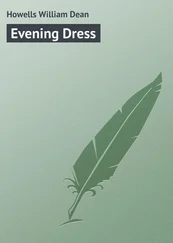William Howells - A Boy's Town
Здесь есть возможность читать онлайн «William Howells - A Boy's Town» — ознакомительный отрывок электронной книги совершенно бесплатно, а после прочтения отрывка купить полную версию. В некоторых случаях можно слушать аудио, скачать через торрент в формате fb2 и присутствует краткое содержание. Издательство: Иностранный паблик, Жанр: foreign_prose, foreign_children, на английском языке. Описание произведения, (предисловие) а так же отзывы посетителей доступны на портале библиотеки ЛибКат.
- Название:A Boy's Town
- Автор:
- Издательство:Иностранный паблик
- Жанр:
- Год:неизвестен
- ISBN:нет данных
- Рейтинг книги:5 / 5. Голосов: 1
-
Избранное:Добавить в избранное
- Отзывы:
-
Ваша оценка:
- 100
- 1
- 2
- 3
- 4
- 5
A Boy's Town: краткое содержание, описание и аннотация
Предлагаем к чтению аннотацию, описание, краткое содержание или предисловие (зависит от того, что написал сам автор книги «A Boy's Town»). Если вы не нашли необходимую информацию о книге — напишите в комментариях, мы постараемся отыскать её.
A Boy's Town — читать онлайн ознакомительный отрывок
Ниже представлен текст книги, разбитый по страницам. Система сохранения места последней прочитанной страницы, позволяет с удобством читать онлайн бесплатно книгу «A Boy's Town», без необходимости каждый раз заново искать на чём Вы остановились. Поставьте закладку, и сможете в любой момент перейти на страницу, на которой закончили чтение.
Интервал:
Закладка:
They could sometimes, under high favor of fortune, push a dog into the Hydraulic, or get him to jump in after a stick; and then have the excitement of following him from one culvert to another, till he found a foothold and scrambled out. Once my boy saw a chicken cock sailing serenely down the currant; he was told that he had been given brandy, and that brandy would enable a chicken to swim; but probably this was not true. Another time, a tremendous time, a boy was standing at the brink of a culvert, when one of his mates dared another to push him in. In those days the boys attached peculiar ideas of dishonor to taking a dare. They said, and in some sort they believed, that a boy who would take a dare would steal sheep. I do not now see why this should follow. In this case, the high spirit who was challenged felt nothing base in running up behind his unsuspecting friend and popping him into the water, and I have no doubt the victim considered the affair in the right light when he found that it was a dare. He drifted under the culvert, and when he came out he swiftly scaled the wall below, and took after the boy who had pushed him in; of course this one had the start. No great harm was done; everybody could swim, and a boy's summer costume in that hot climate was made up of a shirt and trousers and a straw hat; no boy who had any regard for his social standing wore shoes or stockings, and as they were all pretty proud, they all went barefoot from April till October.
The custom of going barefoot must have come from the South, where it used to be so common, and also from the primitive pioneer times which were so near my boy's time, fifty years ago. The South characterized the thinking and feeling of the Boy's Town, far more than the North. Most of the people were of Southern extraction, from Kentucky or Virginia, when they were not from Pennsylvania or New Jersey. There might have been other New England families, but the boys only knew of one – that of the blacksmith whose shop they liked to haunt. His children were heard to dispute about an animal they had seen, and one of them said, "Tell ye 'twa'n't a squeerrel; 'twas a maouse;" and the boys had that for a by-word. They despised Yankees as a mean-spirited race, who were stingy and would cheat; and would not hit you if you told them they lied. A person must always hit a person who told him he lied; but even if you called a Yankee a fighting liar (the worst form of this insult), he would not hit you, but just call you a liar back. My boy long accepted these ideas of New England as truly representative of the sectional character. Perhaps they were as fair as some ideas of the West which he afterwards found entertained in New England; but they were false and stupid all the same.
If the boys could do little with the Hydraulic, they were at no loss in regard to the Reservoirs, into which its feeding waters were gathered and held in reserve, I suppose, against a time of drought. There was the Little Reservoir first, and then a mile beyond it the Big Reservoir, and there was nearly always a large flat boat on each which was used for repairing the banks, but which the boys employed as a pleasure-barge. It seemed in some natural way to belong to them, and yet they had a feeling of something clandestine in pushing out on the Reservoir in it. Once they filled its broad, shallow hold with straw from a neighboring oatfield, and spent a long golden afternoon in simply lying under the hot September sun, in the middle of the Reservoir, and telling stories. My boy then learned, for the first time, that there was such a book as the "Arabian Nights;" one of the other boys told stories out of it, and he inferred that the sole copy in existence belonged to this boy. He knew that they all had school-books alike, but it did not occur to him that a book which was not a Reader or a Speller was ever duplicated. They did nothing with their boat except loll in it and tell stories, and as there was no current in the Reservoir, they must have remained pretty much in the same place; but they had a sense of the wildest adventure, which mounted to frenzy, when some men rose out of the earth on the shore, and shouted at them, "Hello, there! What are you doing with that boat?" They must have had an oar; at any rate, they got to the opposite bank, and, springing to land, fled somewhere into the vaguest past.
The boys went in swimming in the Little Reservoir when they were not in the River or the Basin; and they fished in the Big Reservoir, where the sunfish bit eagerly. There were large trees standing in the hollow which became the bed of the Reservoir, and these died when the water was let in around them, and gave the stretch of quiet waters a strange, weird look; about their bases was the best kind of place for sunfish, and even for bass. Of course the boys never caught any bass; that honor was reserved for men of the kind I have mentioned. It was several years before the catfish got in, and then they were mud-cats; but the boys had great luck with sunfish there and in the pools about the flood-gates, where there was always some leakage, and where my boy once caught a whole string of live fish which had got away from some other boy, perhaps weeks before; they were all swimming about, in a lively way, and the largest hungrily took his bait. The great pleasure of fishing in these pools was that the waters were so clear you could see the fat, gleaming fellows at the bottom, nosing round your hook, and going off and coming back several times before they made up their minds to bite. It seems now impossible that my boy could ever have taken pleasure in the capture of these poor creatures. I know that there are grown people, and very good, kind men, too, who defend and celebrate the sport, and value themselves on their skill in it; but I think it tolerable only in boys, who are cruel because they are thoughtless. It is not probable that any lower organism but still, I believe that even a fish knows a dumb agony from the barbs of the hook which would take somewhat from the captor's joy if he could but realize it.
"In corporal sufferance feels a pang as great
As when a giant dies,"
There was, of course, a time when the Hydraulic and the Reservoirs were not where they afterwards appeared always to have been. My boy could dimly recall the day when the water was first let into the Hydraulic, and the little fellows ran along its sides to keep abreast of the current, as they easily could; and he could see more vividly the tumult which a break in the embankment of the Little Reservoir caused. The whole town rushed to the spot, or at least all the boys in it did, and a great force of men besides, with shovels and wheelbarrows, and bundles of brush and straw, and heavy logs, and heaped them into the crevasse, and piled earth on them. The men threw off their coats and all joined in the work; a great local politician led off in his shirt-sleeves; and it was as if my boy should now see the Emperor of Germany in his shirt-sleeves pushing a wheelbarrow, so high above all other men had that exalted Whig always been to him. But the Hydraulic, I believe, was a town work, and everybody felt himself an owner in it, and hoped to share in the prosperity which it should bring to all. It made the people so far one family, as every public work which they own in common always does; it made them brothers and equals, as private property never does.
Of course the boys rose to no such conception of the fact before their eyes. I suspect that in their secret hearts they would have been glad to have seen that whole embankment washed away, for the excitement's sake, and for the hope of catching the fish that would be left flopping at the bottom of the Reservoir when the waters were drained out, I think that these waters were brought somehow from Old River, but I am not sure how. Old River was very far away, and my boy was never there much, and knew little of the weird region it bounded. Once he went in swimming in it, but the still, clear waters were strangely cold, and not like those of the friendly Miami. Once, also, when the boys had gone into the vast woods of that measureless continent which they called the Island, for pawpaws or for hickory-nuts, or maybe buckeyes, they got lost; and while they ran about in terror, they heard the distant lowing and bellowing of cattle. They knew somehow, as boys know everything, that the leader of the herd, which ranged those woods in a half-savage freedom, was a vicious bull, and as the lowing and bellowing sounded nearer, they huddled together in the wildest dismay. Some were for running, some for getting over a fence near by; but they could not tell which side of the fence the herd was on. In the primitive piety of childhood my boy suggested prayer as something that had served people in extremity, and he believed that it was the only hope left. Another boy laughed, and began to climb a tree; the rest, who had received my boy's suggestion favorably, instantly followed his example; in fact, he climbed a tree himself. The herd came slowly up, and when they reached the boys' refuge they behaved with all the fury that could have been expected – they trampled and tossed the bags that held the pawpaws or buckeyes or hickory-nuts; they gored the trees where the boys hung trembling; they pawed and tossed the soft earth below; and then they must have gone away, and given them up as hopeless. My boy never had the least notion how he got home; and I dare say he was very young when he began these excursions to the woods.
Читать дальшеИнтервал:
Закладка:
Похожие книги на «A Boy's Town»
Представляем Вашему вниманию похожие книги на «A Boy's Town» списком для выбора. Мы отобрали схожую по названию и смыслу литературу в надежде предоставить читателям больше вариантов отыскать новые, интересные, ещё непрочитанные произведения.
Обсуждение, отзывы о книге «A Boy's Town» и просто собственные мнения читателей. Оставьте ваши комментарии, напишите, что Вы думаете о произведении, его смысле или главных героях. Укажите что конкретно понравилось, а что нет, и почему Вы так считаете.












